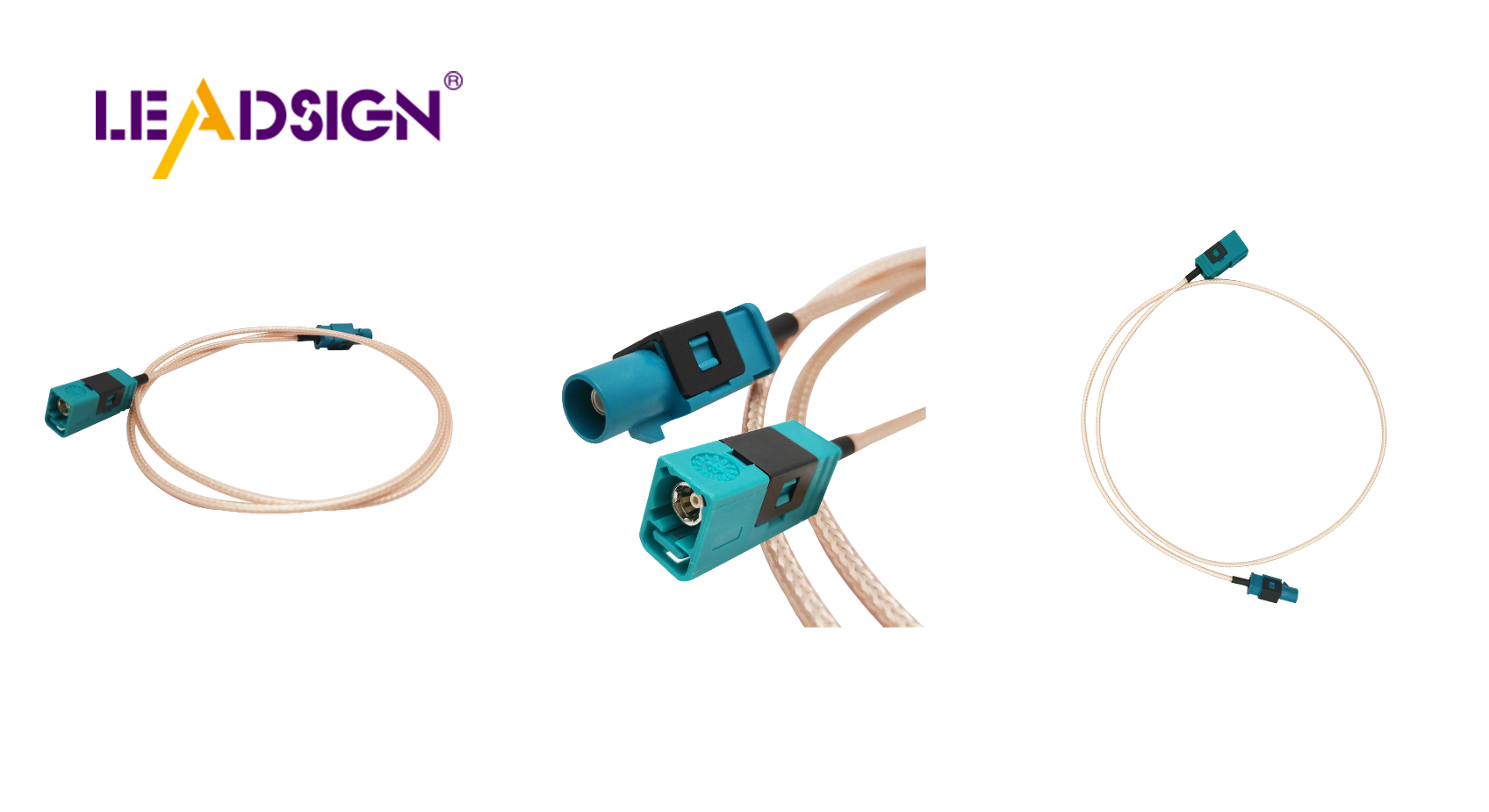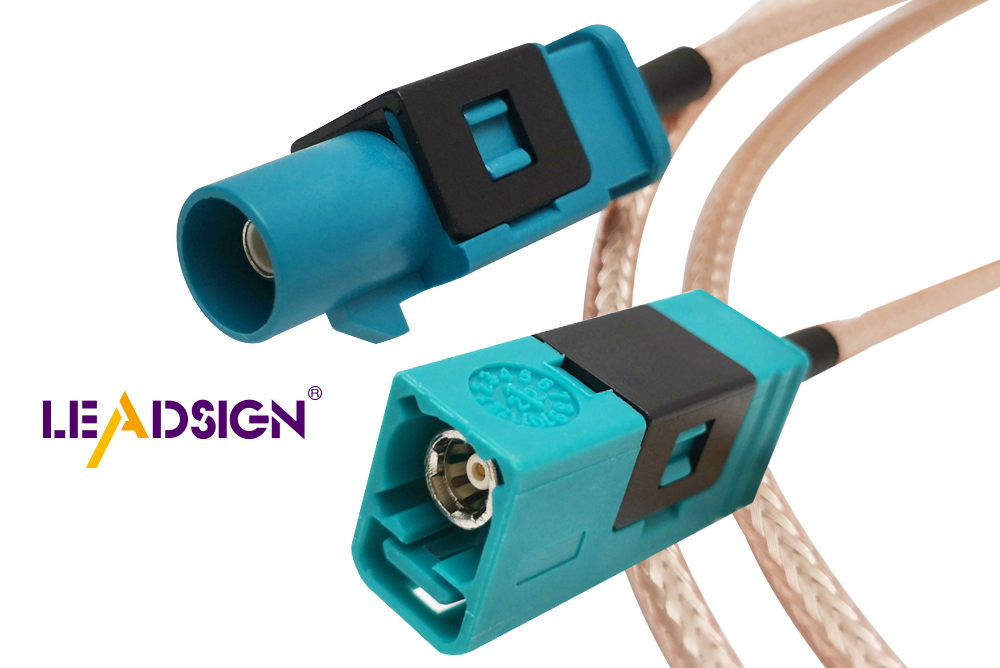Exploring Types of Connectors Electrical for Better Performance

Choosing the right types of connectors electrical is crucial for ensuring your projects function effectively and safely. Understanding the various connector types will aid you in making informed decisions. Good choices enhance the performance of electrical systems, whether in homes, businesses, or factories. If you're a DIY beginner, it's essential to know the appropriate wire connector to prevent hazards and improve connection quality. Always prioritize safety when working with electrical wiring to avoid accidents and maintain strong connections.
Key Takeaways
Choosing the right electrical connector is essential for safety and performance in any project, whether at home, in business, or in factories.
Twist-on wire connectors are ideal for quick home projects due to their ease of use and strong connections; ensure wires are clean and aligned for best results.
Push-in connectors offer speed but may wear out over time; regularly check their integrity to maintain reliable connections.
Crimp-on connectors provide a durable solution for heavy-duty applications; use the appropriate crimping tools to ensure a secure fit.
Always prioritize safety by turning off power before working with electrical connections and using proper tools and protective gear.
Regularly inspect and test your wire connections to prevent hazards and ensure the longevity of your electrical systems.
For automotive applications, opt for specialized connectors like FAKRA to handle high signals and ensure compatibility with vehicle systems.
Overview of Types of Connectors Electrical

Knowing different connectors is important for working with electricity. These connectors help devices work well and safely. Let's look at some common wire connectors you might see.
Twist-On Wire Connectors
Twist-on wire connectors are used in many projects. They join wires by twisting them together. These are easy to use and hold wires tightly. They are great for home use when you need to connect wires fast. Make sure wires are clean and lined up before twisting. This keeps the connection strong.
Push-In Wire Connectors
Push-in connectors are easy to use. You push the wire in, and it stays. They are good when you need to work quickly. But, they can wear out after a while. They might not hold well after many uses. Always check if the connection is still good.
Crimp-On Wire Connectors
Crimp connectors are strong and last long. You use a tool to press the connector onto the wire. This makes a tight bond. They are used in big jobs because they are tough. Use the right tool for the best fit. This makes sure the connection is secure.
Other Special Connectors
In electrical systems, special connectors are very important. They help make connections work well and last long. These connectors are made for certain jobs, making devices work better.
FAKRA Connectors for Cars
FAKRA connectors are special for cars. You see them in cars, handling high signals. They connect cables that send signals, both old and new types. They are very important in today's cars.
Main Features of FAKRA Connectors:
Strong Build: FAKRA connectors are tough for car use. They keep connections safe, stopping signal problems.
Safe Coding: This stops wrong use, making sure connections are right.
High Safety in Assembly: With two locks, these connectors are very safe when put together.
Many Types: FAKRA connectors come in different kinds, like cable, PCB, and panel types. This helps you pick the right one.
Uses:
Car Radios: FAKRA connectors link car radio antennas.
GPS Systems: They connect GPS antennas, helping with directions.
Entertainment Systems: These connectors help send signals for car TV and music systems.
Phone Use in Cars: FAKRA connectors help with phone signals in cars, like Bluetooth and Wi-Fi.
By knowing about connectors like FAKRA, you can choose well for car projects. These connectors make cars work better and safer.
Uses of Wire Connectors
Knowing how wire connectors are used helps you pick the right one. Different places need special connectors for safety and good work. Let's see how they are used in different areas.
Home Uses
At home, wire connectors keep electrical systems safe and working well. You use them to join wires in outlets, switches, and lights. Twist-on connectors are common at home because they are easy and work well. They make strong connections, lowering fire risks. Always match connectors to wire size and type for best results.
Business Uses
In businesses, strong electrical connections are very important. Companies need connectors for lights, heating, and office gear. Push-in connectors are often used because they are fast to install. Quick setups are important where work can't stop for long. Check these connectors often to keep them working well.
Factory Uses
Factories need tough connectors for high power and hard conditions. Crimp-on connectors are best for factories as they hold tight. Use crimping tools for a good fit to stop failures. In big places, connectors must handle heat and shaking to keep things running smoothly.
By knowing how different connectors are used, you can choose better. This makes your projects safer and work better. Whether at home, work, or in factories, picking the right connector is key for good electrical systems.
Detailed Look at Wire Connector Types
Knowing wire connectors helps make safe electrical links. Each type has a special job and benefits. Let's explore some common wire connectors you might find.
Twist-On Wire Connectors
Twist-on connectors are used in many projects. Twist wires together to connect them. They are popular at home because they are easy and work well. Make sure wire ends are clean and lined up. This makes the connection strong and safe. Twist-on connectors are great for quick jobs without special tools.
Push-In Wire Connectors
Push-in connectors are easy and fast to use. Just push the wire in, and it stays. They are good for places where speed matters. But, they can wear out if used a lot. Check them often to keep them working well. Push-in connectors are best for short-term setups or when you need speed.
Crimp-On Wire Connectors
Crimp connectors are strong and last long. Use crimping tools to press them onto wires. This makes a tight and safe connection. Use the right tools for the best fit. This stops problems and keeps things safe. Crimping is best where strength and toughness are needed.
By knowing these wire connectors, you can choose better for your projects. Whether at home, work, or in factories, picking the right connector is key for good performance and safety.
Steps to Pick the Right Wire Connector
Picking the right wire connector is key for safe electrical links. Follow these steps to choose the best one for your needs.
Checking Connector Types for Your Needs
First, know what your project needs. Different wire connectors do different jobs. For example, twist-on wire connectors are great for home wiring. They are easy to use and hold tight. If you need a stronger link, use crimp connectors. These need special tools to make a strong hold, good for big jobs. Think about where you'll use the connector to decide well.
Making Sure It Fits and Holds Tight
After picking a connector, make sure it fits the wires. The right size is important for a strong link. Start by getting the wires ready. Take off the plastic cover to show the metal. Put the wires in the connector, making sure they fit well. For twist-on connectors, twist wires before putting on the connector. For crimp connectors, use tools to press them on tight. This step keeps the link safe from problems.
Testing Connections to Be Sure
After making the link, test it to be sure it's good. Use a tool to check if the circuit works right. This step makes sure the link is safe and steady. Check and test the links often, especially if they might get worn out. Doing this keeps your electrical systems working well and stops problems.
By following these steps, you can pick the right wire connector for your project. This keeps your electrical work safe and working well.
Safety and Compliance in Using Wire Connectors
Staying safe with electrical work is very important. Follow rules to stop accidents and keep things safe. Knowing why product rules matter helps keep you safer.
Importance of Product Compliance
Product rules make sure connectors are good. They must work well in different situations. Using good products lowers the chance of problems. Look for labels or stamps on packages. This shows the product was tested well. Picking good connectors makes your system safer.
Safety Precautions When Using Connectors
Be careful when using wire connectors. Use the right crimping tools. They help make tight connections. Wear gloves and goggles to stay safe. Turn off power before working. This stops shocks. Check your tools often for damage. Good tools make safe connections. Keep your work area clean. A neat space helps stop accidents.
By knowing rules and being careful, you can use connectors safely. These steps keep you safe and make your systems last longer.
Picking the right connectors is very important for projects. Good connectors make things work well and safe. Always use safe products and follow rules like RoHS compliance. This stops legal trouble and keeps connections strong. Use the right tools to crimp wires tightly. Check your tools and connections often to stay safe. By doing these things, your electrical systems last longer and work better.
FAQ
What are the main types of wire connectors?
There are different wire connectors for different jobs. The main ones are:
Twist-On Wire Connectors: Easy to use for quick jobs.
Push-In Wire Connectors: Handy but can wear out over time.
Crimp-On Wire Connectors: Strong and need a tool to fit well.
Why is choosing the right wire connector important?
Picking the right wire connector keeps things safe and working well. The right type stops loose wires, short circuits, or fires. It also helps your electrical system work better.
How do I know which wire connector to use?
Think about where you will use the connector. For home, twist-on is good. For factories, crimp-on is strong and lasts long. Match the connector to the wire size and type for best results.
Can I reuse wire connectors?
Some connectors, like twist-on, can be reused if still good. Push-in ones might not work well after many uses. Always check them and replace if needed for a good connection.
What tools do I need for installing wire connectors?
Tools depend on the connector type. Twist-on needs no special tools. Push-in needs few tools. Crimp-on needs a crimping tool for a tight fit.
How can I ensure a safe electrical connection?
Turn off power before working with wires. Use the right connector and make sure it fits well. Test with a tool to check if it works. Check connections often to keep them safe.
Are there any safety precautions I should follow?
Yes, wear gloves and goggles when working with electricity. Keep your area clean to avoid accidents. Follow safety rules like RoHS to make sure connectors are safe.
What is the role of product compliance in wire connectors?
Product rules make sure connectors are safe and work well. Using good products lowers the risk of problems. Look for marks on packages to check if they are tested.
How often should I check my wire connections?
Check your wire connections often, especially in busy or tough places. Look for wear or damage. Testing helps keep systems safe and working well.
Can I use any wire connector for automotive applications?
For cars, use special connectors like FAKRA. They handle high signals and meet car needs. Pick connectors that fit your car's electrical system.
See Also
Enhancing Automotive Performance Through HFM Connector Usage
Improving Data Transfer in Automotive with Smart Connectors
Understanding How Fakra Connectors Enhance Automotive Systems

